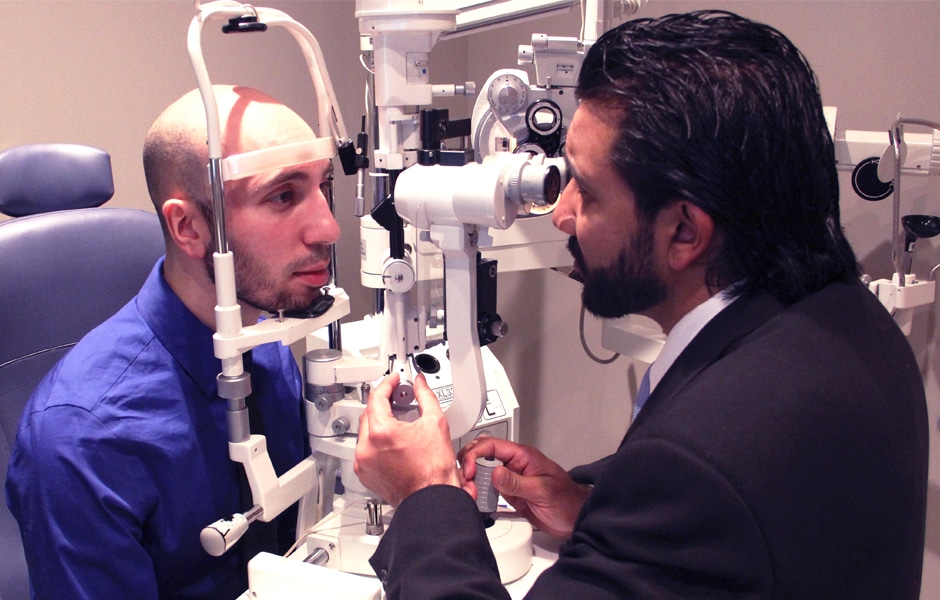Comprehensive Eye Center Andalusia: Quality Eye Treatment Providers
Comprehensive Eye Center Andalusia: Quality Eye Treatment Providers
Blog Article
Comprehending the Different Vision Modification Procedures Available for Clearer View
In the realm of vision correction procedures, a wide range of options exist to deal with refractive errors and supply individuals with more clear sight. From the commonly identified LASIK surgical treatment to less invasive procedures like PRK and implantable lenses, the area of ophthalmology uses a series of strategies customized to match various needs and choices. Each treatment features its own set of considerations, advantages, and possible threats. Recognizing the nuances of these vision improvement approaches is critical for making informed decisions regarding one's aesthetic wellness. Allow's explore the intricacies of these procedures and clarified the course to achieving enhanced vision clearness.
LASIK Surgical Procedure
LASIK surgery is an usual refractive treatment used to remedy vision problems such as nearsightedness, astigmatism, and farsightedness. This medical technique, which stands for Laser-Assisted sitting Keratomileusis, aims to improve the cornea to improve just how light is focused on the retina, inevitably boosting vision quality. Throughout the treatment, a slim flap is developed on the cornea, and a laser is used to remove precise amounts of tissue to reshape it appropriately. This improving enables light to be accurately concentrated onto the retina, dealing with refractive mistakes.
One of the main benefits of LASIK surgical procedure is the rapid renovation in vision experienced by clients. Overall, LASIK surgical treatment is a popular selection for individuals looking for a long-term remedy for their vision problems.
PRK Treatment

PRK is an appropriate choice for people with slim corneas or those at a greater risk of eye injuries, as it does not involve producing a corneal flap. The healing procedure for PRK is a little longer contrasted to LASIK, as the epithelium requires time to restore. Patients may experience discomfort and blurry vision for a few days complying with the treatment.
Regardless of the longer recovery time, PRK can yield outstanding results in vision enhancement, making it a useful choice for those that might not appropriate prospects for LASIK surgical treatment. - Neurologist Andalusia
Implantable Lenses
Unlike PRK where the cornea is improved straight, implantable lenses supply an additional approach for dealing with vision by putting fabricated lenses inside the eye. This treatment is especially helpful for people with high degrees of astigmatism, nearsightedness, or farsightedness that may not be suitable prospects for laser surgical procedures like LASIK or PRK.
Implantable lenses, likewise referred to as phakic intraocular lenses, work by supplementing the eye's all-natural lens with a man-made one. These lenses can be put in front of the all-natural lens (former chamber) or behind the iris and in front of the natural lens (posterior chamber) By my latest blog post readjusting the power and positioning of these lenses, eye doctors can successfully correct refractive mistakes and improve visual skill.
One advantage of implantable lenses is that they are exchangeable and detachable, supplying flexibility for future changes. Nevertheless, as with any kind of procedure, there are dangers involved, such as infection or cataract development. Individuals considering implantable lenses need to seek advice from an eye treatment specialist to establish the most ideal option based upon their individual requirements and eye health.
Corneal Rings

The procedure for inserting corneal rings is minimally intrusive and fairly fast, usually performed as an outpatient procedure. During the surgery, the ophthalmologist makes a small incision in the cornea and inserts the rings at a particular depth. Once in position, the rings help to reshape the cornea, providing a smoother surface for light to enter the eye, which can result in more clear vision.
Corneal rings are considered a reversible treatment, as they can be gotten rid of or changed if needed. While they may not totally eliminate the need for glasses or call lenses, corneal rings can significantly boost vision top quality and general aesthetic comfort for individuals with keratoconus or various other click here to find out more corneal abnormalities.
Refractive Lens Exchange
Complying with the modification of corneal irregularities with procedures like corneal rings, an additional vision improvement method that can deal with refractive errors is Refractive Lens Exchange (RLE) RLE is a medical treatment that involves changing find out this here the eye's all-natural lens with a synthetic intraocular lens (IOL) to correct refractive mistakes such as farsightedness, nearsightedness, and presbyopia. This procedure is specifically helpful for individuals that may not be suitable prospects for procedures like LASIK or PRK as a result of elements such as slim corneas or high refractive errors.
RLE is akin to cataract surgical procedure, as both include removing the eye's natural lens; nonetheless, in RLE, the lens is clear, not gloomy as in cataracts. The artificial lens dental implanted during RLE can be personalized to address the individual's certain refractive mistake, providing clear vision at different ranges. Healing time for RLE is reasonably quick, and individuals can expect better vision right after the treatment. As with any type of procedure, prospective threats and problems exist, so a thorough examination with an eye treatment professional is important to determine if RLE is the best vision improvement option.
Verdict

In the realm of vision modification procedures, a multitude of alternatives exist to deal with refractive mistakes and supply individuals with more clear sight.LASIK surgical procedure is a typical refractive procedure utilized to correct vision troubles such as nearsightedness, farsightedness, and astigmatism.While additionally a common refractive treatment, the PRK (Photorefractive Keratectomy) technique varies from LASIK surgery in its technique to fixing vision troubles.Following the modification of corneal irregularities with treatments like corneal rings, an additional vision adjustment strategy that can address refractive errors is Refractive Lens Exchange (RLE) LASIK surgery, PRK treatment, implantable lenses, corneal rings, and refractive lens exchange are all alternatives that can deal with various vision concerns.
Report this page